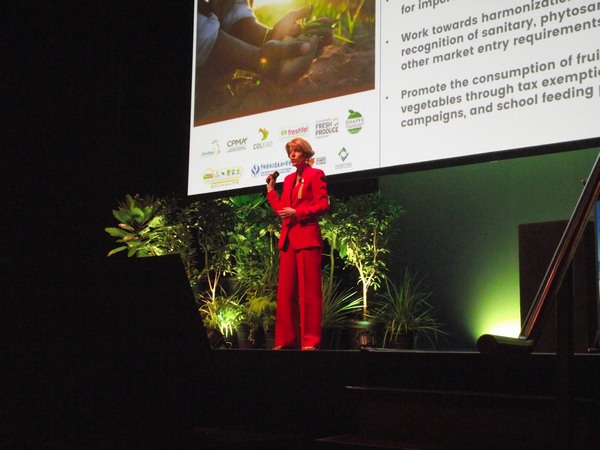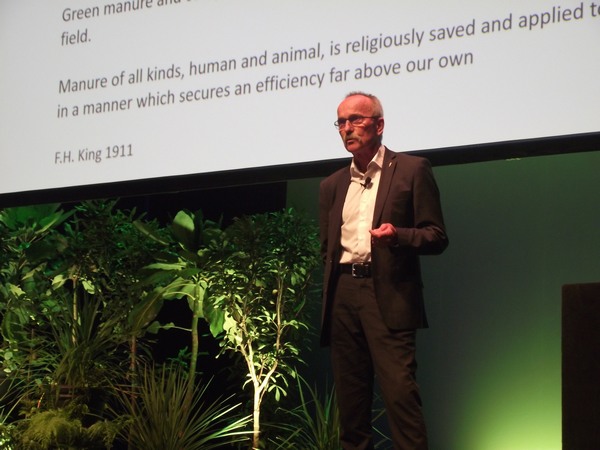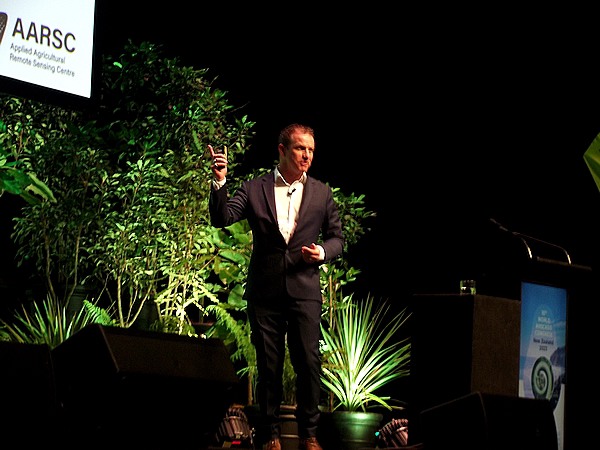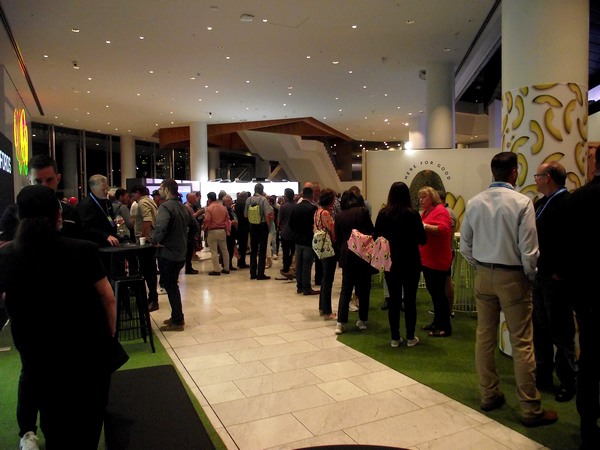The international avocado industry has converged on Auckland, New Zealand for the 10th World Avocado Congress.
Around 1,200 delegates have registered for the four-day event from 33 countries. After a weekend of field days and visits to farms and orchards, the event was officially launched and the official speakers' programme got underway on Monday.

The Chief Executive Officer of the International Fresh Produce Association (IFPA) was the first speaker of the morning, telling delegates that in the post-COVID-19 world, health is at the centre of the conversation, regardless of what country.
"Health is at the centre of the plate, so this is our time to really break through and have a different trajectory of both the health of the world and of our products," Ms Burns said. "I strongly believe our time is now. It's now known that obesity kills, in developed countries, more people than malnourishment; it's a huge opportunity for us, and quite frankly an obligation. In the United States, only 1 in 10 individuals eats the recommended daily amount of fruits and vegetables. Globally the World Health Organisation (WHO) recommends 400g and we are sitting around 267g. The interesting thing is that 75 per cent of consumers agree that fruits and vegetables are important, and they think that they are eating enough of them. Herein lies the opportunity - because this must change. We are better than 1 in 10 or 267 grams."

She also identified technology, and particularly mobile (smart) phones as being a "money maker" not a "time waster" in terms of the reach apps like TikTok can have for a fresh produce business in reaching their customers, and therefore building a meaningful connection between farmer and consumer. Ms Burns also identified food loss and food waste as a big opportunity for the industry.
"There is over six hundred billion dollars worth of food is lost just before, or just after harvest," she said. "Two-thirds of that loss is actually edible food - edible fruit and vegetables that just don't meet consumer standards. If you look at the supermarket side, $400b in food is wasted, which equates to seven per cent of sales. Different organisations are doing different things to attack this, for example, in the United Kingdom, several supermarkets are eliminating the 'Best Before' date on the package; therefore letting the customer decide when the product is no longer good to eat. Another thing that is happening is these optical scanners, developed by a Dutch company called OneThird and uses articles of intelligence to actually tell the shopper the avocado's ripeness and remaining shelflife."

Brent Clothier, a Principal Scientist with Plant and Food Research gave a presentation on climate change, and he told delegates that by mid-century the land area in New Zealand that is suitable for avocados will double, and quadruple by late century. But he noted that extreme events are already starting to hit the industry in the pocket, especially with severe rainfall events that have hit in the past few months.
"We do have to be a little bit wary of the climate 'doom loop' and we can see this happening in New Zealand now," Mr Clothier said. "We have got to focus on adaptation, but focussing on adaptation is correct in the short term, but it cannot be allowed to draw away from the need to slash carbon emissions through mitigation we are going to end up worse in the future."

The Congress also heard from Professor Andrew Robson, from the University of New England, who spoke about the use of AgTech. He detailed two major projects that he has worked on at the Applied Agricultural Remote Sensing Centre (AARSC) with the development of an Australian Tree Crop Map, and also yield forecasting tools. He stressed that it is not so much about the technology that exists in the world at the moment, it is how it is applied.
"A drone won't solve everything, a ground-based robot won't do everything - it is about the application," he said. "It has to address current needs and it has to have a cost-benefit of adoption. If you use it, it has to save you money or make you money and it has to have the science to back it up and is easy to adopt."

Other keynote speakers from the opening day included Sarah McLean who addressed methods to assess sustainability, Francesco Mena Volker spoke about growing avocadoes in challenging times and Eric Imbert gave an overview of the global supply and demand of avocados. There were also several other sessions, focussing on genomics, planting density, pruning and canopy management, consumer marketing and post-harvest fruit performance.
There will be two more days of presentations, before the event wraps up with a gala dinner on Wednesday night.
